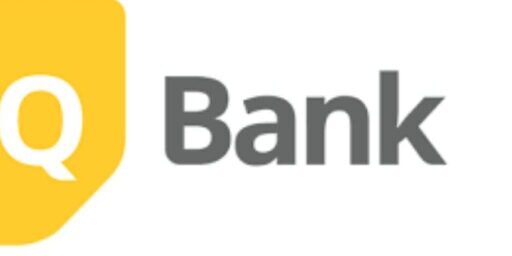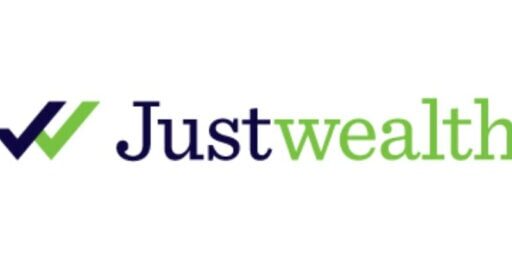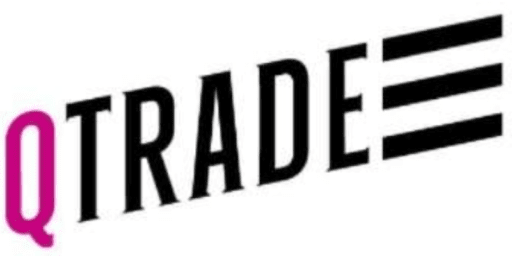Net Worth Update July 2015 – Karl the Real Estate Agent (+10.17%)
Welcome to the Million Dollar Journey December 2014 Net Worth Update – Team MDJ edition. A select group of readers were selected to be part of Team MDJ which was conceived after the million dollar net worth milestone was achieved in June 2014. Karl the Real Estate Agent was selected as a team member and will post net worth updates on a regular basis. Here is more about Karl.
Profile:
- Name: Karl
- Age: 33
- Day Job: Employed as a Real Estate Agent Full Time.
- Family Income: $130,000 (Personal full-time job); $15,600 (rental income before expenses); and, $50,000 (spouse full time job).
- Goals: Mortgage paid off by 36, million dollar net worth by 40.
- Notes: Almost all of net worth is in the real estate market (principal residence and rentals). Current consumer debt includes $13,000 owing on a 2009 Audi a4.
Firstly I have to give as huge thank you again to Frugaltrader for making me a part of this. It really has given me the fire back to work harder and go after my financial goals.
Since my last update I have been working like a dog to get the capital to make things happen. We have been following the plan and I am starting to get some traction. Also my wife has been working like crazy to increase her bonus which has been a great help to the household.
Notable Changes Since the Last Update:
- I sold my building lot as planned;
- Sold my second rental that I owned with family;
- Doubled up my mortgage payments; and,
- We have a couple development properties tied up pending due diligence.
Before the next update, I need to setup my wife’s TFSA and max mine out with the new increase.
My spouse and I currently live in our 4th personal residence since entering the real estate market in 2006. We used to move around town when I was able to find a decent deal to buy. That has all changed now with two kids (4&6), so now my real estate investing is done outside our principle residence. I currently own one rental semi-detached 3 bedroom in my personal name.
In terms of savings, I’m automatically making bi-weekly deposits into my TFSA to max out the year but I still have plenty of room left. However, my wife’s account hasn’t been fully funded over the years. I’m looking forward to learning more about investing in securities and transitioning away from rentals as they are extremely labor intensive investments that take a lot of time away from my family.
The biggest financial challenges that we face are a lack of budgeting and a lot of discretionary spending. Having the majority of our household income being commission based and somewhat seasonal has been a battle since day one.
On to the net worth numbers:
Assets: $ 855,817(-5.55%)
- Cash: $16,600 (+33.0%)
- Registered/Retirement Investment Accounts (RRSP):$6,488 (-3.0%)
- TFSA: $13,229 (+1.36%)
- Business Account : $82,000
- Real Estate Deposits : $7,500
- Rental Property 1: $230,000 (purchased in 2009 for $167,000 price adjusted for average selling price annually) (+0.00%)
- Principal Residence: $500,000(purchased in 2012 for $350,000 price adjusted for average selling price annually) (+5.00% )
Liabilities: $378,351 (-19.96%)
- Principal Residence Mortgage: $240,311.15 (-2.77%)
- Rental Property 1 Mortgage: $133,350 (-1.22%)
- Rental Property Line Of Credit: $0
- Principle Residence Line Of Credit: $4,688
- Mastercard: $0
Total Net Worth: ~$477,466 (+10.17%)
- Started Jan 2014 with Net Worth: $249,924
Some quick notes and explanations to common questions:
The Cash
Any cash I have in my chequing account is currently used to pay monthly bills and living expenses. All paycheques are deposited into our chequing account and is our primary household account that everything runs through so the cash amount fluctuates.
The large cash amount sitting in my business account is what I have from liquidating my rental and land and will be used to finance the next piece of land I am looking at. If i haven’t found anything by May of next year it will be put on my principle residence and setup so I can access it as a LOC.









Wow, incredible progress. It is always fascinating to see a family’s personal numbers and what their savings / investing strategy is.
I can understand the challenges with budgeting based on commission. My suggestion would be to create and stick to a budget based on the lowest average monthly commission earned. If this is not possible, I would just use the average and anytime there is left over add this to an account which can be drawn from when there are shortfalls. I think the most important thing is to create a budget on paper that both parties agree to.
This post reads like how to expose yourself to the most possible systemic risk… even momentarily thought this might be satire, but then I remembered, Canadians are a house horny bunch that believe RE only goes in one direction despite overwhelming contrary evidence and indicators.
“Its not long term investment into real estate. I will have a signed agreement from the builder to purchase the building lots at a specific price prior to firming up on the development land.
I agree I’m heavy into real estate but it is my business as well and these investments get me spin off into more resales.”
I understand
Given the nature of your business, I feel that it is very risky to hold extra RE investments, so for rental property 1, does it meet one of the following criteria:
– Does it allow you to secure extra sales?
– Does it have a very good yield? (I would aim for above 8% if I were employed in RE, because of the extra personal risk)
If the answer is no for one of the questions, what is the benefit in holding it?
“I work in an industry that is crazy competitive as well as cyclical. I honestly have no idea how long the wave of success will last and I’m trying to get it out of the way while things are good.”
Nobody has an idea (Although if I would have to bet, I would pick a date from October 19, 2015 till 2016 budget – that is if Harper is lucky enough)
However, the real question to ask is this:
If the “phone stops ringing” tomorrow morning, do you feel secure enough to see yourself through the downturn?
You do not actually expect us to believe that an annual return of 12.5% is possible for your principal residence. In my opinion unless you sell it and lock in this gain, it amounts to counting your chickens before they watch. Also a principal residence is an expense not an investment that give returns.
I agree with M S completely. You should immediately transfer the 100k of equity in your rental property to your principal residence. The fact that you haven’t already done so increases the inherent risks both M S and I see in your portfolio. Way too much is based on Canadian Real Estate which as M S states in not actually worth owning unless it is making 6%, 5% at the very least would be acceptable seeing as low rates seem to be a given for some time to come.
Having an agreement with a builder is only good if the builder stays solvent. If he is leveraged into RE as you, this could end in a really bad domino effect scenario. You badly need to diversify.
nobleea – Part of the reason I feel the need to pay off the principle mortgage is I work in an industry that is crazy competitive as well as cyclical. I honestly have no idea how long the wave of success will last and I’m trying to get it out of the way while things are good.
M S – The cash I have sitting there is needed in order to get into the development with the builder I am working with now. Once we get the next property going it will allow me to a) get paid on the development of the property b) get paid to sell all the new properties.
Its not long term investment into real estate. I will have a signed agreement from the builder to purchase the building lots at a specific price prior to firming up on the development land.
I agree I’m heavy into real estate but it is my business as well and these investments get me spin off into more resales.
I’m curious why you’re in a rush to pay down your mortgage. I don’t know what the interest rate is on it, but it’s likely pretty low. You’d almost definitely get a better rate of return putting that money into index funds as opposed to paying down the mortgage.
On the practical side it is good to pay your principal residence debt
It is less so for your investment property. Presumably because it is structured in a tax efficient manner, in which carrying debt would be a good thing since the interest can be claimed as expense
Thus it would be good to pay all of your principal residence debt, before paying anythings towards the investment property debt
I would appreciate a comment if you disagree
“The large cash amount sitting in my business account is what I have from liquidating my rental and land and will be used to finance the next piece of land I am looking at”
Not a good idea IMHO. You are already over-invested in RE. 90% of your net worth is in leveraged RE and you work in the field. This is a huge risk, and you need to diversify as soon as possible
“I’m looking forward to learning more about investing in securities and transitioning away from rentals as they are extremely labor intensive investments that take a lot of time away from my family.”
While there are lots of good resources out there in essence it is not that different than a proper investment in RE and comes down to balance sheets and cash flow.
It appears that you have 100K invested into your rental property. How much do you gain from this investment per year after all your expenses? Is it 3K, 5K, 10K (as in 3%, 5% or 10%). I assume most of it would be from rent and not from capital gain ( since you stated +0.00% growth). I personally would not touch any real RE investment which does not yield above 6% (on rent-expenses basis) as less than that doesn’t worth my time and probably carries a risk of capital loss
Good progress. On the co-owned rental, did the whole thing get sold? Or was your share purchased by the other family members? If it sold on the market, did you get the price you had put down as the market value? Or was it higher or lower? Selling a property is the moment of truth for a net worth statement as it will immediately show whether you were overestimating or sandbagging it’s value.